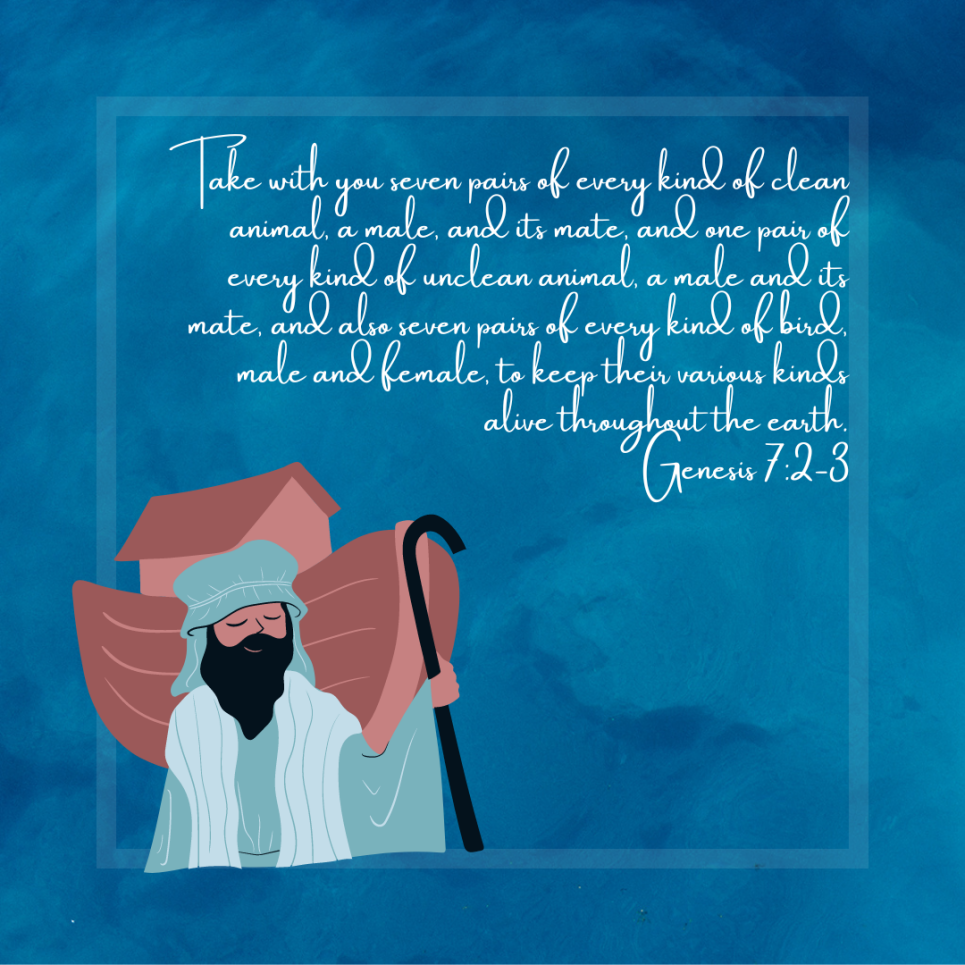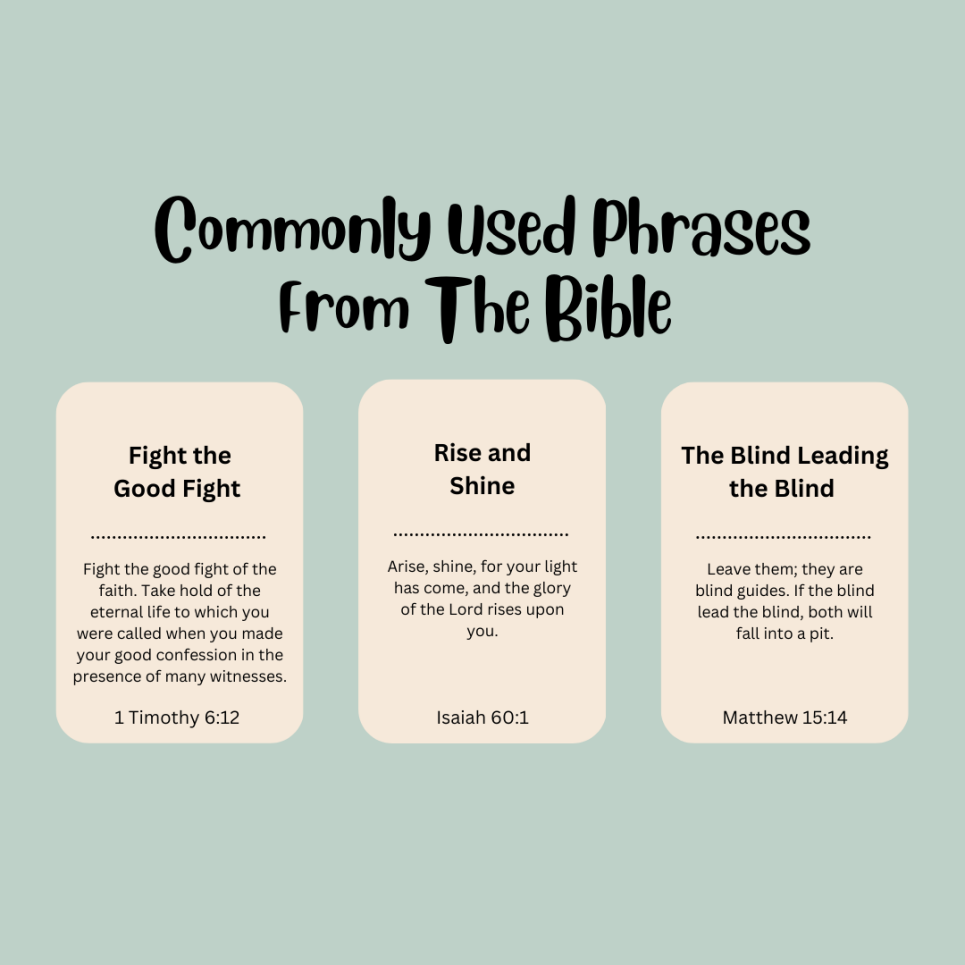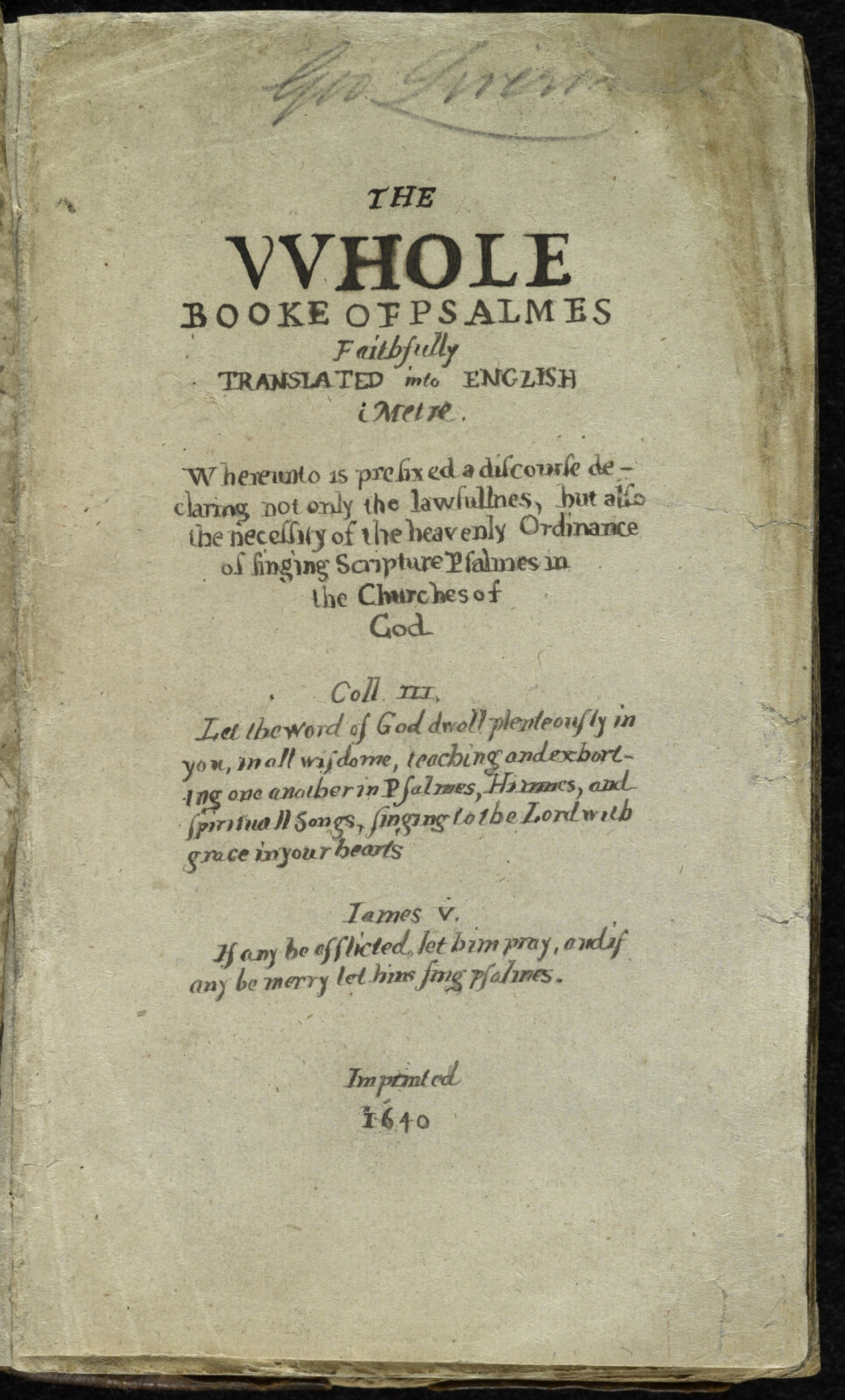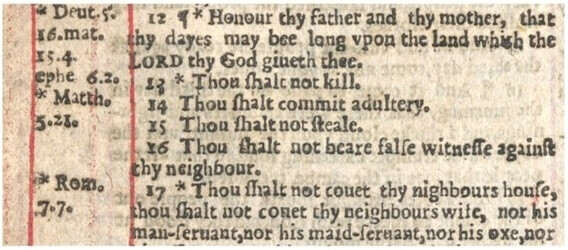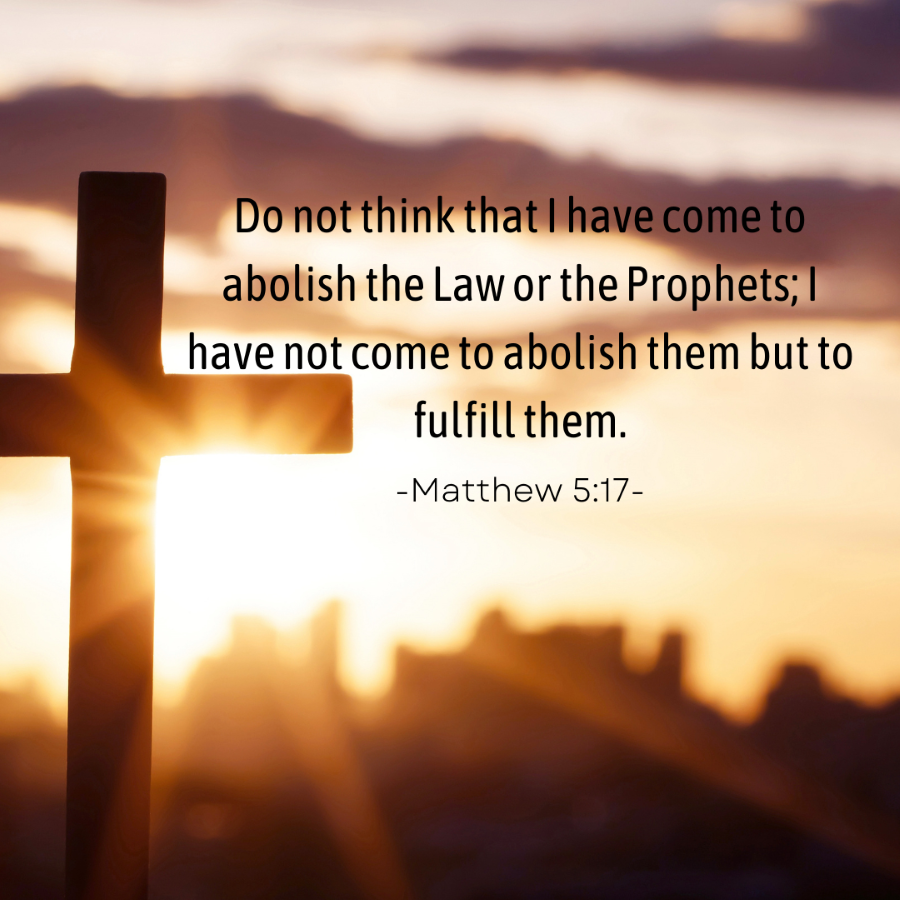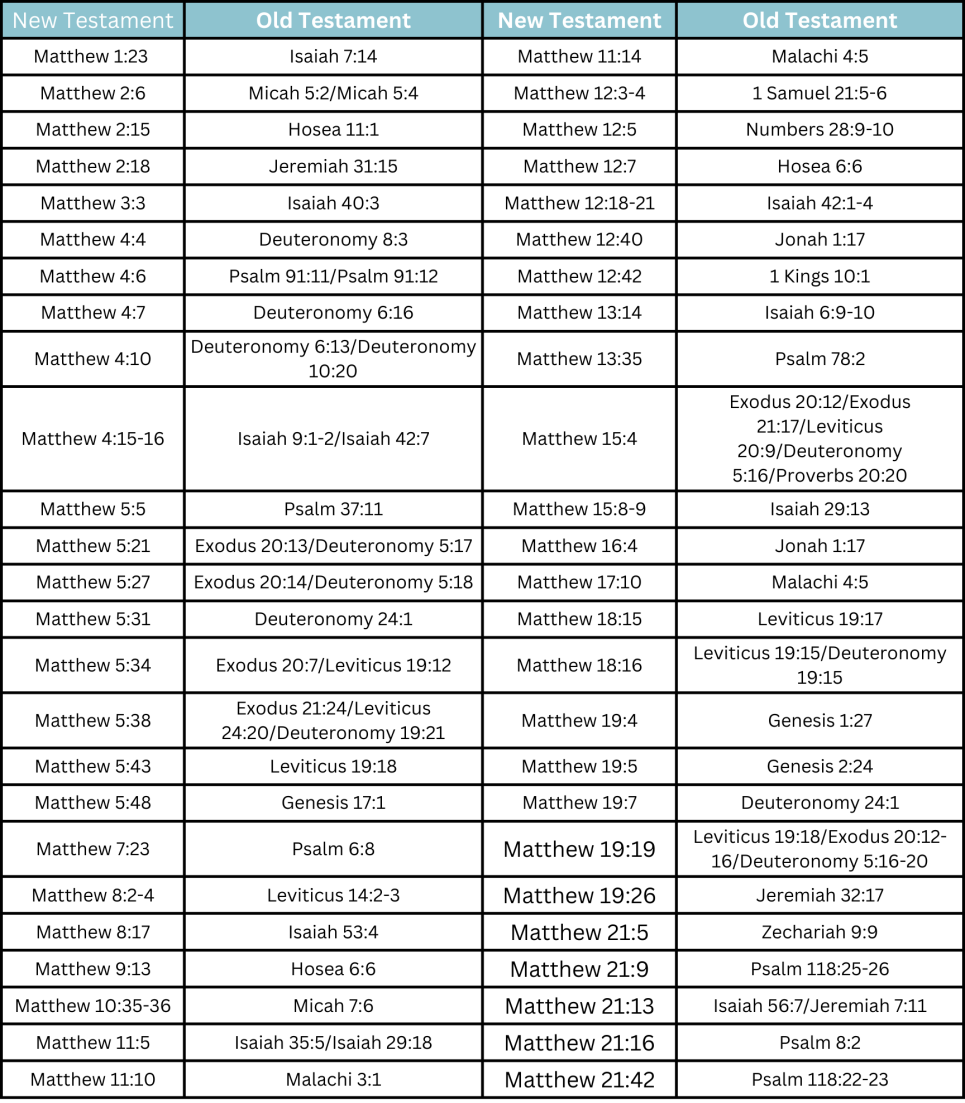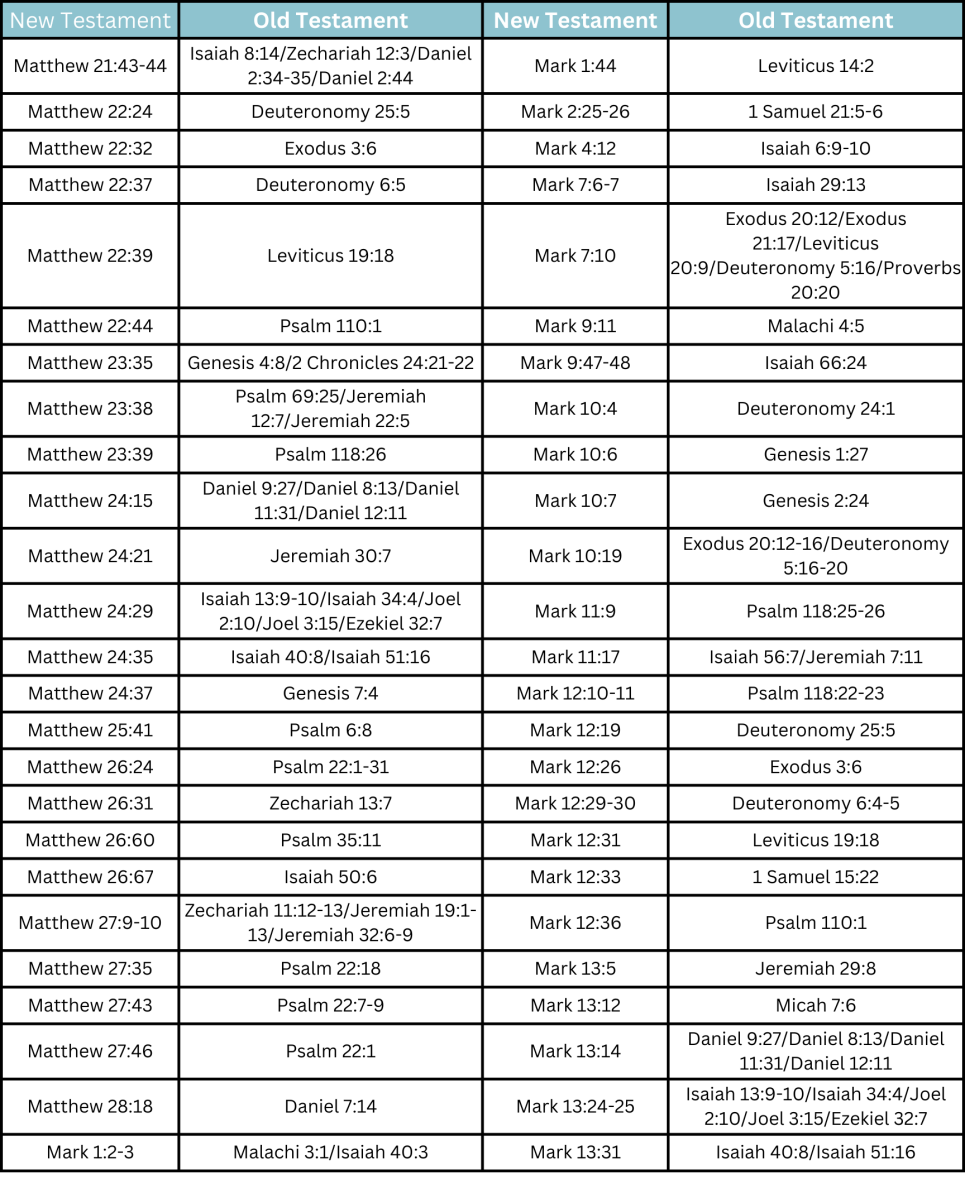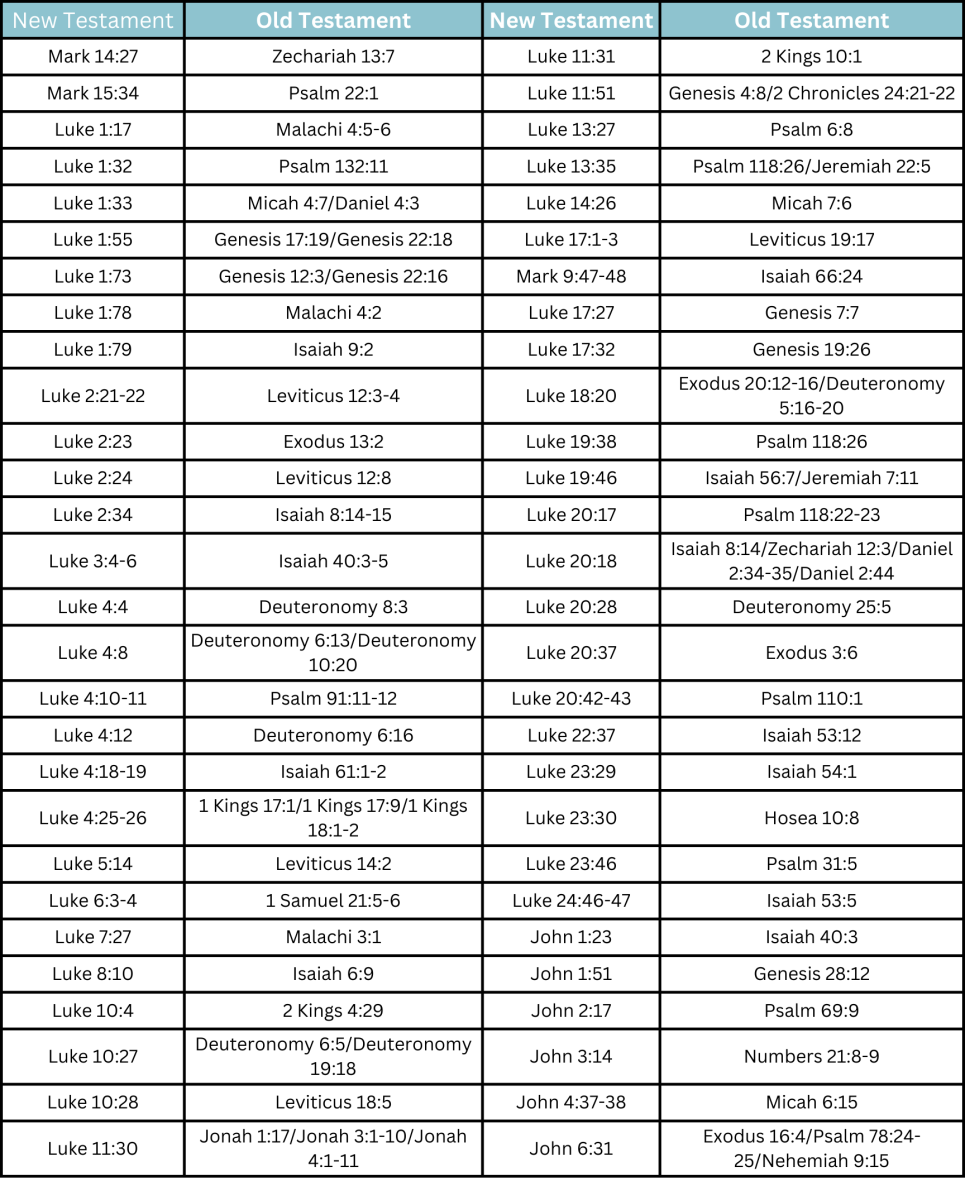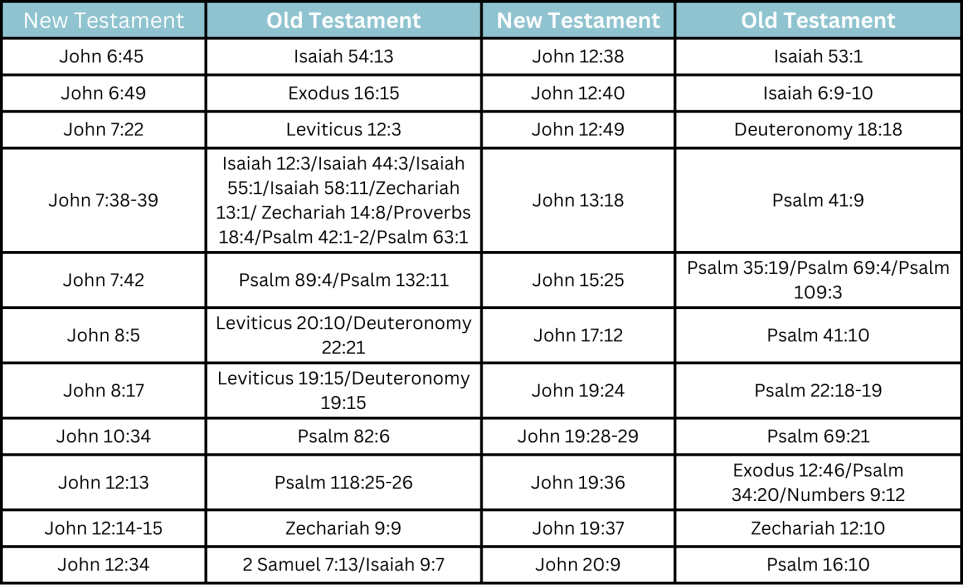Common Phrases, Idioms, and Words Derived from the Bible
Did you know that many of the metaphors, figures of speech, and phrases that are habitually used today stem from the Bible? Although some of the meanings and definitions have veered off the path of the original context or intent, the fact that these expressions are accepted in everyday speech and literature emphasizes the influence the Bible has on society.
***All scriptures are NIV unless otherwise noted***
“By the sweat of your brow”
Definition: something that is achieved by your hard work.
Genesis 3:19: By the sweat of your brow you will eat your food until you return to the ground, since from it you were taken; for dust you are and to dust you will return.
“Oh ye of little faith”
Definition: a mild rebuke in response to someone expressing doubt.
Luke 12:28: If that is how God clothes the grass of the field, which is here today, and tomorrow is thrown into the fire, how much more will he clothe you—you of little faith!
Matthew 6:30: If that is how God clothes the grass of the field, which is here today and tomorrow is thrown into the fire, will he not much more clothe you—you of little faith?
Matthew 16:8: Aware of their discussion, Jesus asked, “You of little faith, why are you talking among yourselves about having no bread?”
“Throw/Cast the first stone”
Definition: describing someone who is quick to judge, criticize, or blame.
John 8:7: When they kept on questioning him, he straightened up and said to them, “Let any one of you who is without sin be the first to throw a stone at her.”
“The truth will set you free”
Definition: Accepting the truth about a circumstance or situation that will allow you to move forward in life.
John 8:32: Then you will know the truth, and the truth will set you free.
“It is better to give than to receive”
Definition: It is more fulfilling to give to others than it is to receive.
Acts 20:35: In everything I did, I showed you that by this kind of hard work, we must help the weak, remembering the words the Lord Jesus himself said: ‘It is more blessed to give than to receive.’
“Twinkling of an eye”
Definition: Something that occurs very quickly.
1 Corinthians 15:52: …in a flash, in the twinkling of an eye, at the last trumpet. For the trumpet will sound, the dead will be raised imperishable, and we will be changed.
“You reap what you sow”
Definition: Your consequences are shaped by your actions.
Galatians 6:7: Do not be deceived: God cannot be mocked. A man reaps what he sows.
“Labor of love”
Definition: Work someone does for their own enjoyment or for the benefit of someone else without expecting anything in return.
1 Thessalonians 1:3: We remember before our God and Father your work produced by faith, your labor prompted by love, and your endurance inspired by hope in our Lord Jesus Christ.
“Fight the good fight”
Definition: Acting in a moral and ethical manner.
1 Timothy 6:12: Fight the good fight of the faith. Take hold of the eternal life to which you were called when you made your good confession in the presence of many witnesses.
“Ashes to ashes, dust to dust”
Definition: a metaphor for death.
Genesis 3:19: By the sweat of your brow you will eat your food until you return to the ground, since from it you were taken; for dust you are and to dust you will return.
“Am I my brother's/sister’s keeper?” or “I’m not my brother's/sister’s keeper”
Definition: saying you are not responsible for someone or something that happens to them, usually in reference to a sibling.
Genesis 4:9: Then the Lord said to Cain, “Where is your brother Abel?” “I don’t know,” he replied. “Am I my brother’s keeper?”
“I am my brother’s/sister’s keeper”
Definition: being responsible for the well-being of someone, usually a sibling.
Genesis 4:9: Then the Lord said to Cain, “Where is your brother Abel?” “I don’t know,” he replied. “Am I my brother’s keeper?”
“The land of milk and honey”
Definition: a place that is thought to be prosperous.
Deuteronomy 6:3: Hear, Israel, and be careful to obey so that it may go well with you and that you may increase greatly in a land flowing with milk and honey, just as the Lord, the God of your ancestors, promised you.
Numbers 13:27: They gave Moses this account: “We went into the land to which you sent us, and it does flow with milk and honey! Here is its fruit.
Leviticus 20:24: But I said to you, “You will possess their land; I will give it to you as an inheritance, a land flowing with milk and honey.” I am the Lord your God, who has set you apart from the nations.
Exodus 3:8: So I have come down to rescue them from the hand of the Egyptians and to bring them up out of that land into a good and spacious land, a land flowing with milk and honey—the home of the Canaanites, Hittites, Amorites, Perizzites, Hivites and Jebusites.
“An eye for an eye”
Definition: justice that is achieved by a punishment equal to the crime.
Exodus 21:23-25: But if there is serious injury, you are to take life for life, eye for eye, tooth for tooth, hand for hand, foot for foot, burn for burn, wound for wound, bruise for bruise.
Leviticus 24:19-20: Anyone who injures their neighbor is to be injured in the same manner: fracture for fracture, eye for eye, tooth for tooth. The one who has inflicted the injury must suffer the same injury.
The word “Scapegoat”
Definition: a person who is held accountable for another's wrongdoings.
Leviticus 16:10: But the goat chosen by lot as the scapegoat shall be presented alive before the Lord to be used for making atonement by sending it into the wilderness as a scapegoat.
“Apple of my eye”
Definition: a person or thing that is cherished and held in high regard.
Deuteronomy 32:10: In a desert land he found him, in a barren and howling waste. He shielded him and cared for him; he guarded him as the apple of his eye,
Zechariah 2:8: For this is what the Lord Almighty says: “After the Glorious One has sent me against the nations that have plundered you—for whoever touches you touches the apple of his eye.
“A man/woman after my heart” or “A man/woman after my own heart”
Definition: a reference to someone who shares beliefs, values, or interests with you.
1 Samuel 13:14: But now your kingdom will not endure; the Lord has sought out a man after his own heart and appointed him ruler of his people, because you have not kept the Lord’s command.
Acts 13:22: After removing Saul, he made David their king. God testified concerning him: ‘I have found David son of Jesse, a man after my own heart; he will do everything I want him to do.’
“Be a man”
Definition: to handle a situation without complaint; to go about something with a tough perspective.
1 Kings 2:2: “I am about to go the way of all the earth,” he said. “So be strong, act like a man.”
“Put your house in order”
Definition: to arrange your affairs; to solve your own problems; to correct your habits and issues.
2 Kings 20:1: In those days Hezekiah became ill and was at the point of death. The prophet Isaiah son of Amoz went to him and said, “This is what the Lord says: Put your house in order, because you are going to die; you will not recover.”
Isaiah 38:1: In those days Hezekiah became ill and was at the point of death. The prophet Isaiah son of Amoz went to him and said, “This is what the Lord says: Put your house in order, because you are going to die; you will not recover.”
“Nothing but skin and bones"
Definition: describing someone who is unhealthily thin or emaciated.
Job 19:20: I am nothing but skin and bones; I have escaped only by the skin of my teeth.
“By the skin of my/your teeth”
Definition: narrowly getting through or achieving something.
Job 19:20: I am nothing but skin and bones; I have escaped only by the skin of my teeth.
“The root of the matter”
Definition: the essence or base of something.
Job 19:28: If you say, ‘How we will hound him, since the root of the trouble lies in him
“Bite the dust”
Definition: to die; to fail at something; to fall.
Psalms 72:9: May the desert tribes bow before him and his enemies lick the dust.
“At my wit's end”
Definition: used to emphasize that you are so overwhelmed with something and you are unsure what to do about it.
Psalm 107:27: They reeled and staggered like drunkards; they were at their wits’ end.
“Eat, drink, and be merry”
Definition: expressing a carefree attitude; living in the moment and enjoying yourself.
Ecclesiastes 8:15: So I commend the enjoyment of life, because there is nothing better for a person under the sun than to eat and drink and be glad. Then joy will accompany them in their toil all the days of the life God has given them under the sun.
Luke 12:19: And I’ll say to myself, “You have plenty of grain laid up for many years. Take life easy; eat, drink and be merry.”
“A little birdie told me”
Definition: to let someone know that you have received a piece of information without revealing the source of the information.
Ecclesiastes 10:20: Do not revile the king even in your thoughts, or curse the rich in your bedroom, because a bird in the sky may carry your words, and a bird on the wing may report what you say.
“Four corners of the Earth”
Definition: representing the farthest parts of the earth; referring to something that is from all over the world.
Isaiah 11:12: He will raise a banner for the nations and gather the exiles of Israel; he will assemble the scattered people of Judah from the four quarters of the earth.
“See eye to eye”
Definition: agreeing with someone; having the same opinion as someone.
Isaiah 52:8 (KJV): Thy watchmen shall lift up the voice; with the voice together shall they sing: for they shall see eye to eye, when the Lord shall bring again Zion.
“No rest for the wicked”
Definition: referring to having a lot of work to be done.
Isaiah 57:21: “There is no peace,” says my God, “for the wicked.”
“Rise and shine”
Definition: used to tell someone it is time to get up for the day.
Isaiah 60:1: Arise, shine, for your light has come, and the glory of the Lord rises upon you.
“A leopard can’t change its spots”
Definition: refers to a person's inability to change their basic character and personality traits.
Jeremiah 13:23: Can an Ethiopian change his skin or a leopard its spots? Neither can you do good who are accustomed to doing evil.
“Laughter is the best medicine”
Definition: laughter benefits a person's attitude, outlook, and health.
Proverbs 17:22: A cheerful heart is good medicine, but a crushed spirit dries up the bones.
“The writing on the wall”
Definition: there are clear indications that something bad is going to happen.
Daniel 5:5-6: Suddenly the fingers of a human hand appeared and wrote on the plaster of the wall, near the lampstand in the royal palace. The king watched the hand as it wrote. His face turned pale and he was so frightened that his legs became weak and his knees were knocking.
“To the ends of the Earth”
Definition: to express an unending amount of effort put into something.
Zechariah 9:10: I will take away the chariots from Ephraim and the warhorses from Jerusalem, and the battle bow will be broken. He will proclaim peace to the nations. His rule will extend from sea to sea and from the River to the ends of the earth.
“Go the extra mile”
Definition: to put in more work or effort than is required or expected.
Matthew 5:41: If anyone forces you to go one mile, go with them two miles.
“Keep on the straight and narrow”
Definition: living in a way that is moral and ethical.
Matthew 7:14: But small is the gate and narrow the road that leads to life, and only a few find it.
“Wolves/Wolf in sheep’s clothing”
Definition: used to describe someone who puts off the air of moral intentions, but is concealing a malicious agenda.
Matthew 7:15: Watch out for false prophets. They come to you in sheep’s clothing, but inwardly they are ferocious wolves.
“A house divided”
Definition: refers to the division within any organization, including business, government, family, etc.
Matthew 12:25: Jesus knew their thoughts and said to them, “Every kingdom divided against itself will be ruined, and every city or household divided against itself will not stand.
Mark 3:25: If a house is divided against itself, that house cannot stand.
Luke 11:17: Jesus knew their thoughts and said to them: “Any kingdom divided against itself will be ruined, and a house divided against itself will fall.
“Fall/fell by the wayside”
Definition: to fail to complete something you started.
Matthew 13:4 (KJV): And when he sowed, some seeds fell by the way side, and the fowls came and devoured them up.
Mark 4:4 (KJV): And it came to pass, as he sowed, some fell by the way side, and the fowls of the air came and devoured it up.
“Fly in the ointment”
Definition: an irritation or a troublesome setback that causes the overall picture of something to be spoiled.
Ecclesiastes 10:1 (ESV): Dead flies make the perfumer's ointment give off a stench; so a little folly outweighs wisdom and honor.
“Like a lamb led to the slaughter”
Definition: describing someone who obediently or innocently does what is expected without knowledge or understanding about the danger they will face.
Jeremiah 11:19: I had been like a gentle lamb led to the slaughter; I did not realize that they had plotted against me, saying, “Let us destroy the tree and its fruit; let us cut him off from the land of the living, that his name be remembered no more.”
Isaiah 53:7: He was oppressed and afflicted, yet he did not open his mouth; he was led like a lamb to the slaughter, and as a sheep before its shearers is silent, so he did not open his mouth.
“Salt of the Earth”
Definition: used to describe people who are honest, reliable, and all-around good.
Matthew 5:13: You are the salt of the earth. But if the salt loses its saltiness, how can it be made salty again? It is no longer good for anything, except to be thrown out and trampled underfoot.
“The blind leading the blind”
Definition: used to describe a person who lacks understanding in a matter that is providing advice of the matter to another.
Matthew 15:13-14: He replied, “Every plant that my heavenly Father has not planted will be pulled up by the roots. Leave them; they are blind guides. If the blind lead the blind, both will fall into a pit.”
“Sign of the times”
Definition: refers to something that highlights the way society is/was during a specific period, usually negative.
Matthew 16:3: and in the morning, ‘Today it will be stormy, for the sky is red and overcast.’ You know how to interpret the appearance of the sky, but you cannot interpret the signs of the times.
“Flesh and blood”
Definition: referring to a familial relation; referring to someone who is human.
Matthew 16:17: Jesus replied, “Blessed are you, Simon son of Jonah, for this was not revealed to you by flesh and blood, but by my Father in heaven.”
Ephesians 6:12: For our struggle is not against flesh and blood, but against the rulers, against the authorities, against the powers of this dark world and against the spiritual forces of evil in the heavenly realms.
“My/His/Her/Their cross to bear”
Definition: referring to an unfavorable situation or problem someone has to accept or deal with.
Matthew 16:24 Then Jesus said to his disciples, “Whoever wants to be my disciple must deny themselves and take up their cross and follow me.”
“Move/Moving mountains”
Definition: to achieve something seemingly impossible.
Matthew 17:20: He replied, “Because you have so little faith. Truly I tell you, if you have faith as small as a mustard seed, you can say to this mountain, ‘Move from here to there,’ and it will move. Nothing will be impossible for you.”
Matthew 21:21: Jesus replied, “Truly I tell you, if you have faith and do not doubt, not only can you do what was done to the fig tree, but also you can say to this mountain, ‘Go, throw yourself into the sea,’ and it will be done.
Mark 11:23: “Truly I tell you, if anyone says to this mountain, ‘Go, throw yourself into the sea,’ and does not doubt in their heart but believes that what they say will happen, it will be done for them.”
1 Corinthians 13:2: If I have the gift of prophecy and can fathom all mysteries and all knowledge, and if I have a faith that can move mountains, but do not have love, I am nothing.
“The eleventh hour”
Definition: the very last possible moment to do something that needs to be done.
Matthew 20:6 (KJV): And about the eleventh hour he went out, and found others standing idle, and saith unto them, Why stand ye here all the day idle?
“Kiss of death”
Definition: something that ensures the failure or ruin of a situation.
Matthew 26:48-50: Now the betrayer had arranged a signal with them: “The one I kiss is the man; arrest him.” Going at once to Jesus, Judas said, “Greetings, Rabbi!” and kissed him. Jesus replied, “Do what you came for, friend.” Then the men stepped forward, seized Jesus and arrested him.
To “wash your hands” of something
Definition: to strip yourself of responsibility.
Matthew 27:24: When Pilate saw that he was getting nowhere, but that instead an uproar was starting, he took water and washed his hands in front of the crowd. “I am innocent of this man’s blood,” he said. “It is your responsibility!”
“Head on a platter”
Definition: a threat or desire to seek severe revenge or punishment.
Mark 6:25: At once the girl hurried in to the king with the request: “I want you to give me right now the head of John the Baptist on a platter.”
“Good Samaritan”
Definition: refers to a charitable and compassionate person.
Luke 10:30-37: In reply Jesus said: “A man was going down from Jerusalem to Jericho, when he was attacked by robbers. They stripped him of his clothes, beat him and went away, leaving him half dead. A priest happened to be going down the same road, and when he saw the man, he passed by on the other side. So too, a Levite, when he came to the place and saw him, passed by on the other side. But a Samaritan, as he traveled, came where the man was; and when he saw him, he took pity on him. He went to him and bandaged his wounds, pouring on oil and wine. Then he put the man on his own donkey, brought him to an inn and took care of him. The next day he took out two denarii and gave them to the innkeeper. ‘Look after him,’ he said, ‘and when I return, I will reimburse you for any extra expense you may have.’ “Which of these three do you think was a neighbor to the man who fell into the hands of robbers?” The expert in the law replied, “The one who had mercy on him.” Jesus told him, “Go and do likewise.”
To End
It is pretty amazing the scope that the Bible has had on civilizations, cultures, societies, and the like. Can you think of any other words, phrases, or figures of speech we missed?


